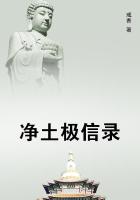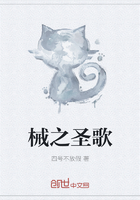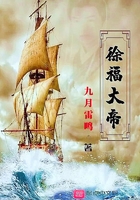THE GENERAL INTRODUCTION OF MACHINERY
DID NOT BRING ABOUT THE ERA OF
HAPPINESS AND PROSPERITY WHICH
HAD BEEN PREDICTED BY THE GENERATION
WHICH SAW THE STAGE COACH REPLACED
BY THE RAILROAD. SEVERAL
REMEDIES WERE SUGGESTED BUT NONE
OF THESE QUITE SOLVED THE PROBLEM
IN the year 1831, just before the passing of the first Reform Bill Jeremy Bentham, the great English student of legislative methods and the most practical political reformer of that day, wrote to a friend: "The way to be comfortable is to make others comfortable. The way to make others comfortable is to appear to love them. The way to appear to love them is to love them in reality." Jeremy was an honest man. He said what he believed to be true. His opinions were shared by thousands of his countrymen. They felt responsible for the happiness of their less fortunate neighbours and they tried their very best to help them. And Heaven knows it was time that something be done!
The ideal of "economic *******" (the "laissez faire" of Turgot) had been necessary in the old society where mediaeval restrictions lamed all industrial effort. But this "liberty of action" which had been the highest law of the land had led to a terrible, yea, a frightful condition. The hours in the fac- tory were limited only by the physical strength of the workers.
As long as a woman could sit before her loom, without fainting from fatigue, she was supposed to work. Children of five and six were taken to the cotton mills, to save them from the dangers of the street and a life of idleness. A law had been passed which forced the children of paupers to go to work or be punished by being chained to their machines. In return for their services they got enough bad food to keep them alive and a sort of pigsty in which they could rest at night. Often they were so tired that they fell asleep at their job. To keep them awake a foreman with a whip made the rounds and beat them on the knuckles when it was necessary to bring them back to their duties. Of course, under these circumstances thousands of little children died. This was regrettable and the employers, who after all were human beings and not without a heart, sincerely wished that they could abolish "child labour." But since man was "free" it followed that children were "free" too.
Besides, if Mr. Jones had tried to work his factory without the use of children of five and six, his rival, Mr. Stone, would have hired an extra supply of little boys and Jones would have been forced into bankruptcy. It was therefore impossible for Jones to do without child labour until such time as an act of Parliament should forbid it for all employers.
But as Parliament was no longer dominated by the old landed aristocracy (which had despised the upstart factory- owners with their money bags and had treated them with open contempt), but was under control of the representatives from the industrial centres, and as long as the law did not allow workmen to combine in labour-unions, very little was accomplished.
Of course the intelligent and decent people of that time were not blind to these terrible conditions. They were just helpless. Machinery had conquered the world by surprise and it took a great many years and the efforts of thousands of noble men and women to make the machine what it ought to be, man's servant, and not his master.
Curiously enough, the first attack upon the outrageous system of employment which was then common in all parts of the world, was made on behalf of the black slaves of Africa and America. Slavery had been introduced into the American continent by the Spaniards. They had tried to use the Indians as labourers in the fields and in the mines, but the Indians, when taken away from a life in the open, had lain down and died and to save them from extinction a kind-hearted priest had suggested that negroes be brought from Africa to do the work. The negroes were strong and could stand rough treatment.
Besides, association with the white man would give them a chance to learn Christianity and in this way, they would be able to save their souls, and so from every possible point of view, it would be an excellent arrangement both for the kindly white man and for his ignorant black brother. But with the introduction of machinery there had been a greater demand for cotton and the negroes were forced to work harder than ever before, and they too, like the Indians, began to die under the treatment which they received at the hands of the overseers.
Stories of incredible cruelty constantly found their way to Europe and in all countries men and women began to agitate for the abolition of slavery. In England, William Wilberforce and Zachary Macaulay, (the father of the great historian whose history of England you must read if you want to know how wonderfully interesting a history-book can be,) organised a society for the suppression of slavery. First of all they got a law passed which made "slave trading" illegal. And after the year 1840 there was not a single slave in any of the British colonies. The revolution of 1848 put an end to slavery in the French possessions. The Portuguese passed a law in the year 1858 which promised all slaves their liberty in twenty years from date. The Dutch abolished slavery in 1863 and in the same year Tsar Alexander II returned to his serfs that liberty which had been taken away from them more than two centuries before.
In the United States of America the question led to grave difficulties and a prolonged war. Although the Declaration of Independence had laid down the principle that "all men were created free and equal," an exception had been made for those men and women whose skins were dark and who worked on the plantations of the southern states. As time went on, the dislike of the people of the North for the institution of slavery increased and they made no secret of their feelings. The southerners however claimed that they could not grow their cotton without slave-labour, and for almost fifty years a mighty debate raged in both the Congress and the Senate.













